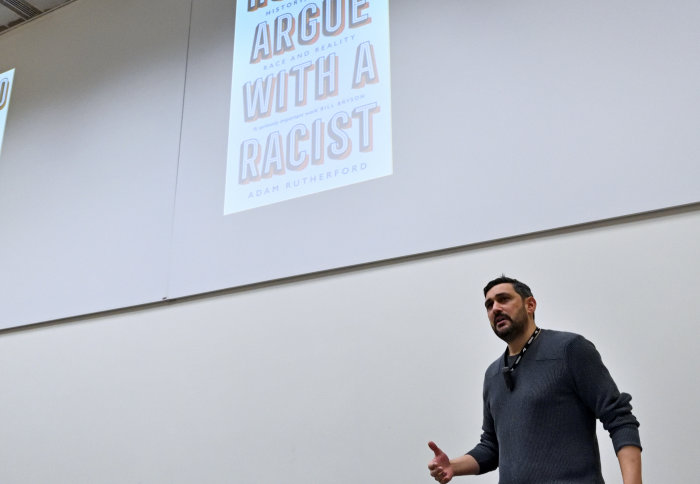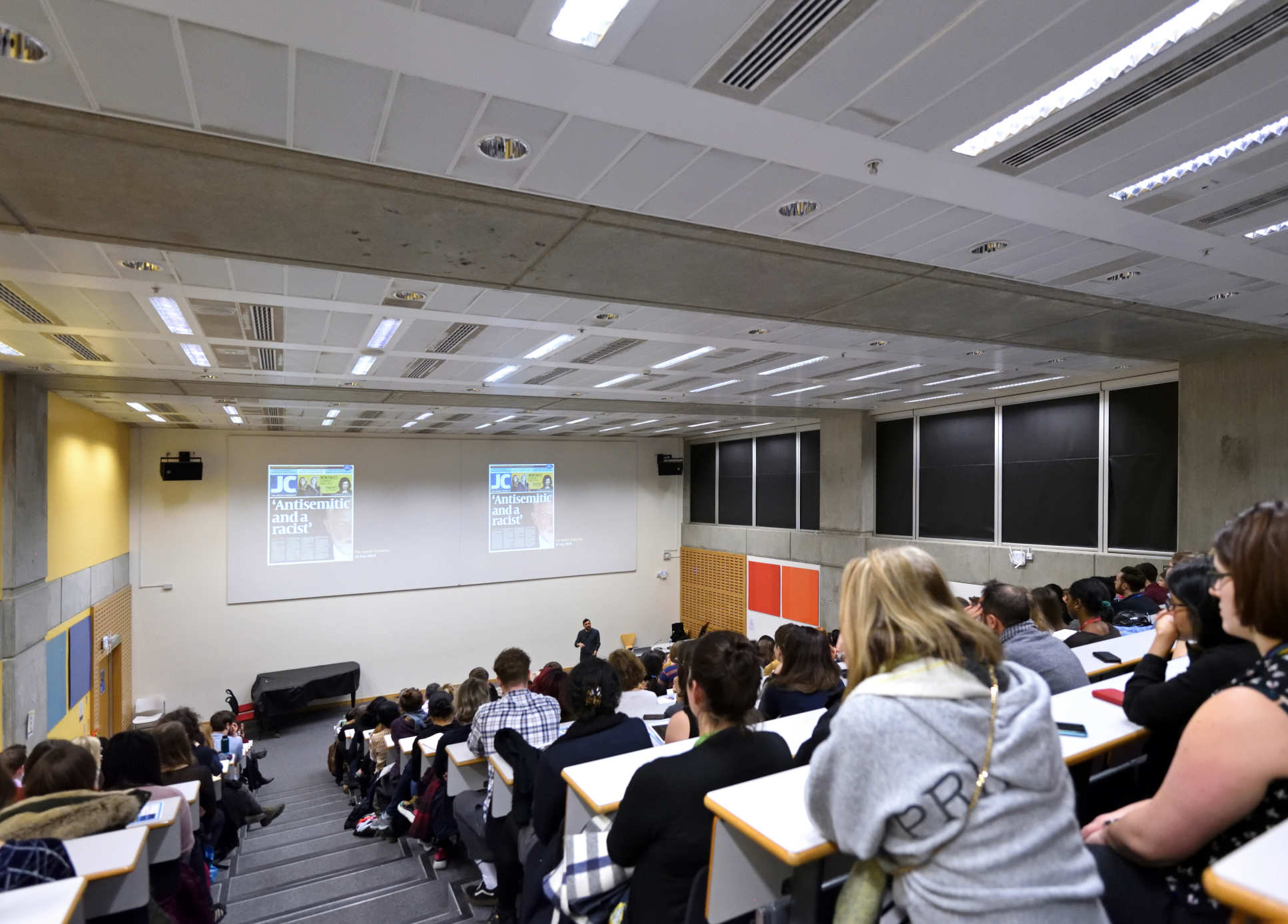“Bigotry shifts its axis according to prevailing culture”: Dr Adam Rutherford

Science writer, broadcaster and geneticist Dr Adam Rutherford delivered a lecture on his latest book ‘How to Argue with a Racist.'
Adam, an honorary research fellow at University College London, spoke about some of the key themes tackled in his book, which urges readers to view human evolution and variation through a new lens. Adam’s argument centres on how for centuries, science has been misused to justify bigotry and racism.
Martha Nahar also interviewed Adam about what researchers and scientists can learn from his book. You can listen to an audio interview with him below.
1. Hunting for an identity
 Introducing his lecture, Adam described How to Argue with a Racist as a weapon that can be used to fight against the role that unfounded ideas about race continue to play in modern genetics.
Introducing his lecture, Adam described How to Argue with a Racist as a weapon that can be used to fight against the role that unfounded ideas about race continue to play in modern genetics.
He explained: “The book is a tool which can be used to confront racism, especially where science is being used, or marshalled into, racist arguments – because science is no ally of racism.”
“The way we talk about race is established from the Enlightenment, and we still use these classifications to this day." Dr Adam Rutherford
Adam talked about the rise of ancestry testing, including the importance placed on such testing by white supremacists, and how it has been used to back up claims of racial purity.
He gave the example of some white supremacists who “chug” milk to demonstrate their superior genetic ability to process lactose.
Debunking the myth that this makes them superior, Adam said: “The ability to process lactose isn’t unique to people of European descent."
2. The dark history of human genetics
 Were the founders of the field of genetics racist? Adam seems to suggest so. In his lecture, he talked about Carl Linnaeus – known as the ‘father of taxonomy’ – as having laid the foundations for scientific racism.
Were the founders of the field of genetics racist? Adam seems to suggest so. In his lecture, he talked about Carl Linnaeus – known as the ‘father of taxonomy’ – as having laid the foundations for scientific racism.
Adam explained how Linnaeus’ classifications were based primarily on skin colour, and that his classifications resulted in him making judgements about race that placed white Europeans on top, and labelled Africans as “lazy” and Asians as “haughty”.
He also described Voltaire, traditionally seen as the ‘hero of Enlightenment’, as being inherently racist.
“The way we talk about race is established from the Enlightenment, and we still use these classifications to this day,” said Adam. “They are often really absurd social prejudices and are inherently racist. Bigotry shifts its axis according to prevailing culture.”
In his podcast interview, he adds: “Many of the things they did say are the basis of stereotypes and myths that exist within society today.”
3. Taking the fight out of the lab
Ending his lecture, Adam said: “As scientists, we are coached to just produce data."
He discussed how scientists have released data into society and have enabled ideologies and those in positions of power to spread misinformation. He explains that researchers need to “know their science” and understand what genetics really says about human evolution.
“We have failed as scientists to understand what we convey, and what we think, to the public. We need to take the fight out of the lab.”

Article text (excluding photos or graphics) © Imperial College London.
Photos and graphics subject to third party copyright used with permission or © Imperial College London.
Reporter
Martha Salhotra
Communications Division